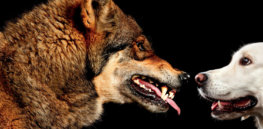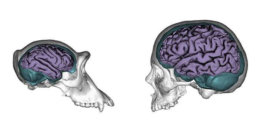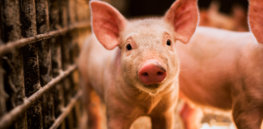brains

Podcast: Dogology—The science of our four-legged friends
Geneticist Kat Arney brings you some scientific tails as we explore the genetics of dog breeds and behaviour ...

Human brains have more in common with our ‘ape cousins’ than previously thought
Our brains could have more in common with our ape cousins than previously thought, which might require us to rethink ...

Was our brain growth kick-started by ancestors scavenging bone marrow from animal carcasses?
A new theory challenges assumptions about when and how our ancestors altered their behaviors to boost brainpower ...

Revived pig brains may unleash uncomfortable questions for how we define death
The researchers hypothesized an “under-appreciated capacity” of an oxygen-starved mammalian brain to survive ...

Restoration of brain activity in dead pigs could lead to new treatments for stroke, drug overdose
Scientists restored some activity within the brains of pigs that had been slaughtered hours before, raising hopes for some medical ...

Not-so-mad scientists and why they’re making human body parts
Halloween brings a cornucopia of candy body parts, so it’s a good time to review recent advances in organoid technology ...

Do babies dream? If so, what do they dream about?
Technological advances are helping to shed more and more insight on, as the University of Washington professor of early-childhood learning ...

Why are humans so much smarter than other primates?
By counting the number of neurons in brains, one scientist revolutionized our view of why Homo sapiens and nonhuman primates ...

Reflex star: How our brain helps us track—and respond to—to balls, cars and other fast moving objects
New research may explain why some people—like sports stars—anticipate and react to fast-moving objects much quicker than others. When Serena ...

